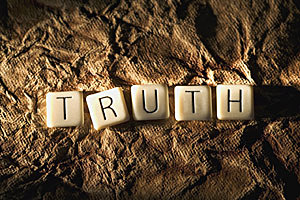 Faith is a gift that is lived out in the material realm. That is why the Church has always said that faith can flower simply by opening our eyes and our ears. If we only try, we can see God in the face of Jesus Christ; we can see Him in the Eucharist, in religious art, in the priest, and in the form of spiritual and corporal works of mercy. At the same time, we can hear God in meditation and contemplation, in His word proclaimed by the Church, in the words of those we love, and even in the mouths of strangers who come our way.
Faith is a gift that is lived out in the material realm. That is why the Church has always said that faith can flower simply by opening our eyes and our ears. If we only try, we can see God in the face of Jesus Christ; we can see Him in the Eucharist, in religious art, in the priest, and in the form of spiritual and corporal works of mercy. At the same time, we can hear God in meditation and contemplation, in His word proclaimed by the Church, in the words of those we love, and even in the mouths of strangers who come our way.
Sadly there are individuals, governments, religions, and religious groups that try to deny this plain truth to Christians because of their own deep-seeded disdain for truth, God, and Christian prayer. Pope Francis refers to this phenomenon in number 25 of chapter two (nos. 23-36) in his encyclical Lumen Fidei. To put the language a little more plainly:
(1) There is a crisis of truth in our age.
(2) We tend to believe that objective truth comes only from the scientific know-how.
(3) We tend to believe there is a subjective truth valid for each individual.
(4) Christian truth is dismissed as another example of totalitarianism.
(5) God has become irrelevant.
(6) We are left with relativism.
Pope Francis goes on to explain this phenomenon: “In this regard, though, we can speak of a massive amnesia in our contemporary world. The question of truth is really a question of memory, deep memory, for it deals with something prior to ourselves and can succeed in uniting us in a way that transcends our petty and limited individual consciousness. It is a question about the origin of all that is, in whose light we can glimpse the goal and thus the meaning of our common path” (Lumen Fidei, #25).
This truth of which the Pope speaks is the Trinitarian God who creates, redeems, and sanctifies. This is the one and only truth that undergirds everything in the universe, pervades all of creation, and stands through eternity. At the same time, it is not an inaccessible truth because God is constantly revealing Himself to us. All we have to do is look and listen. Pope Francis explains this further in chapter two of Lumen Fidei (in simplified language):
(1) God speaks to man (the Bible presents it to us in this way).
(2) Listening is a personal act.
(3) Hearing emphasizes love and obedience.
(4) Hearing God is accompanied by the desire to see God.
(5) Sight provides a vision of our journey within God’s overall plan.
In other words, no matter who you are or where you are, when you take the time to see and to hear, all of your experiences will naturally come together to point you toward the ultimate truth, which is contained in the person of Christ Himself.
So, during this Year of Faith, make a choice to look at and listen to God, and ask yourself this: am I aware of relativism? Do I perpetuate it? Am I developing my own amnesia? Are others around me developing amnesia? Do I allow myself to listen to God, and to see Him?
Let us pray for one another that we may live our lives illumined by faith.



